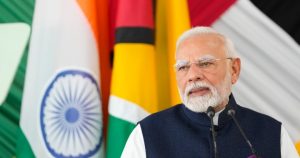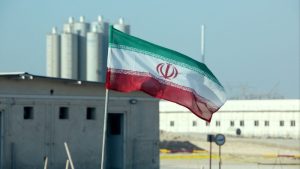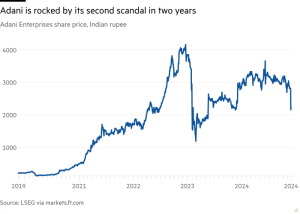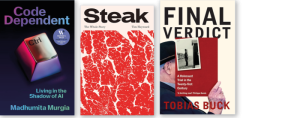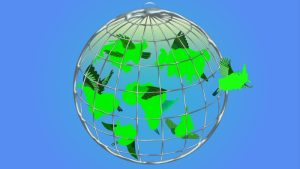Germany will play a pivotal role in Ukraine’s future
Unlock the US Election Countdown newsletter for free
The stories that matter on money and politics in the race for the White House
The writer directs the Center on the US and Europe at the Brookings Institution
As winter nears, the question of Ukraine’s future looms large. According to the UN, Russia systematically destroyed 73 per cent of the country’s power plants and electricity grid in nine waves of attacks over the spring and summer. “The stresses on the system are now immense,” says the International Energy Agency. Yet Russia’s relentless battering of cities and infrastructure continues; its troops grind across Ukraine’s eastern defences, leaving desolation in their wake. Ukraine, while not collapsing, is paying an increasingly horrific price for its self-defence.
Western leaders are transparently anxious to broker a ceasefire with the Kremlin; German Chancellor Olaf Scholz has been talking about a “swifter path to peace”. Ukrainian President Volodymyr Zelenskyy wants to force Russia into talks with a five-point “victory plan”. That includes Nato membership, more sophisticated weaponry and permission to use western-made long-range missiles for strikes against targets deep in Russian territory.
But Russian President Vladimir Putin, far from signalling any inclination to compromise on full capitulation by Kyiv, is ratcheting up aggression against Ukraine, as well as its western supporters. Thousands of elite North Korean troops have arrived in Russia’s western Kursk region — US secretary of defence Lloyd Austin calls their presence a “very, very serious” escalation. And even though the International Criminal Court has indicted the Russian president for war crimes, Putin last week hosted a Brics meeting in Kazan that was attended by the leaders of China, India, Iran and Turkey and even UN secretary-general António Guterres.
Across Europe, Russian hostile activities spanning the gamut from propaganda, sabotage and arson to assassination plots have escalated, with a special focus on Germany. One of Germany’s spy chiefs recently warned parliamentarians: “Putin will continue to test the west’s red lines and further escalate the confrontation.” Meanwhile in Moscow, a series of defence ministry propaganda posters threaten: “The Russian bear is just waking up, this is only the beginning.”
It is against this dark backdrop that western and Ukrainian officials are weighing options for bringing the Kremlin to the negotiating table. Last week, G7 leaders finally agreed to provide Kyiv with $50bn in loans backed by earnings from frozen Russian sovereign assets by December — an important signal to Moscow of continued support for Kyiv.
However, a key question is still unresolved: should pressure on Russia be increased or decreased before talks? Should Putin be induced to agree to a ceasefire by a formal invitation for Kyiv to join Nato — or, conversely, by its renunciation? Most states on the alliance’s eastern flank (as well as Nato’s new secretary-general Mark Rutte) are seen as being in the former camp, Germany is thought to be in the latter (with others hiding behind it), while Hungary and Slovakia, both with pro-Kremlin leaders, openly oppose it.
Now a German paper reports that Paris and London are leaning towards an invitation, and even the Biden administration is cautiously willing to entertain the topic. The unpleasant truth, as the scholar Liana Fix points out, is that this would mean Ukraine accepting the de facto loss of the territories occupied by Russia (while, like West Germany during the cold war, retaining the goal of reunification) and forgoing the use of force to recover them. Some say voluntary restraints — such as Norway’s assurances to the Soviet Union that no foreign forces would be deployed on its territory when it joined Nato in 1949 — might provide another incentive for the Kremlin.
But that all rests on two highly speculative additional premises: that Putin is a rational actor, and that the US election next week is won by Kamala Harris. In case of a victory by Donald Trump — the odds are currently about 50/50 — it is entirely moot. Then Europe will be on its own defending Ukraine and facing down Russia.
Germany’s role is pivotal. Unlike Boris Johnson, who as UK prime minister was forever wrapping himself in Winston Churchill’s mantle, Scholz is a deeply reticent man who abhors political theatrics and shouty invocations of destiny. He certainly has other worries, such as a recession and the fact that his unpopular three-party coalition appears on the brink of collapse. Yet, in a dark time for Ukraine and Europe, a great deal is resting on his shoulders.
#Germany #play #pivotal #role #Ukraines #future
